How do you feel after reading the business section of the newspaper or your favorite business publication?
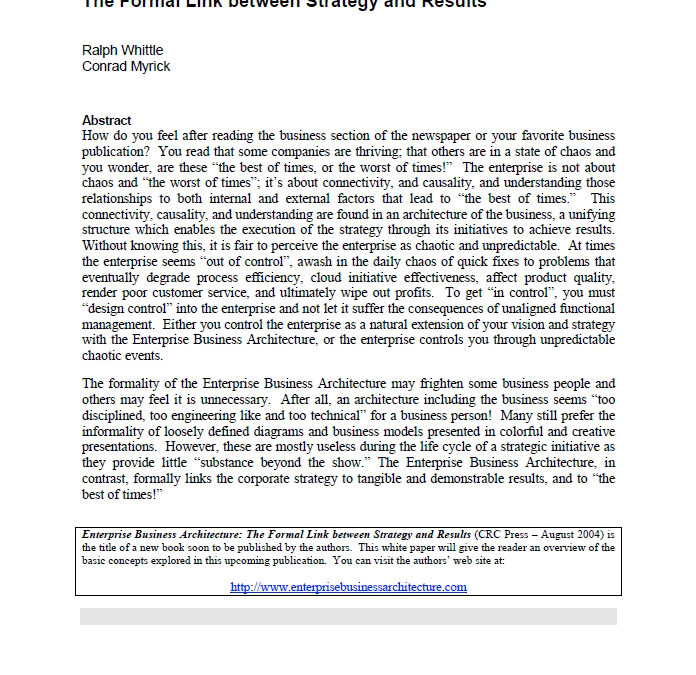

How do you feel after reading the business section of the newspaper or your favorite business publication?
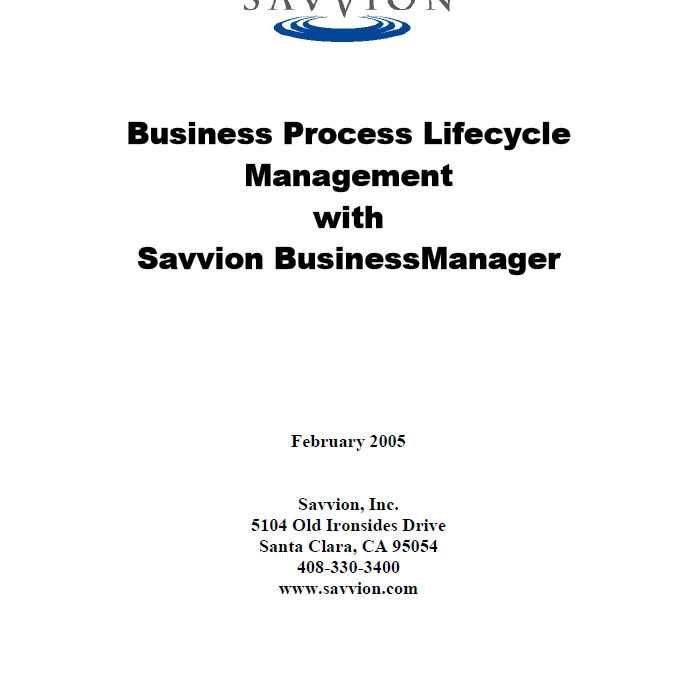
Savvion’s award winning Business Process Management system, Savvion BusinessManager™, enables organizations to automate and manage critical business processes by integrating the people and systems that execute those processes. From supply-chain to service management, help desk and employee self-service applications, Savvion’s unique lifecycle approach to process enables business and IT to collaborative to deploy process improvement initiatives in less than 90 days while delivering a 200% – 300% return on investment.
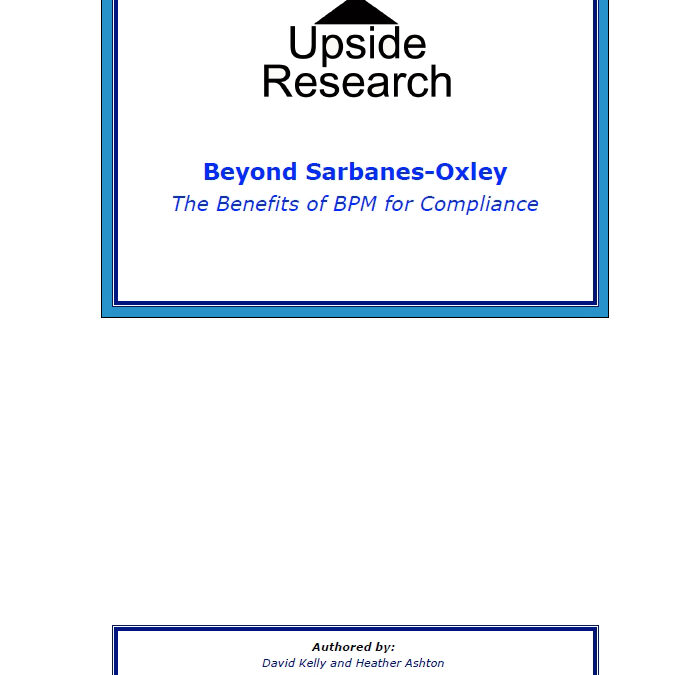
Forward-looking organizations realize that BPM-based SOX compliance solutions will not only meet their initial regulatory needs, but also provide the long-term framework for strategic risk management and process control. Creating compliance “Inside” business process controls enables an organization to go beyond documenting and evaluating SOX controls to actually remediating deficient controls and enforcing them within their business processes.

Business Rules Engines (BREs) have been getting more attention over the last few years. Seen as a way to increase the visibility and accessibility of a business’ core policies as they exist in applications and ensure a stronger alignment of business priorities and application systems, these engines are being used to automate a company’s business rules in a consistent and cost-effective manner.
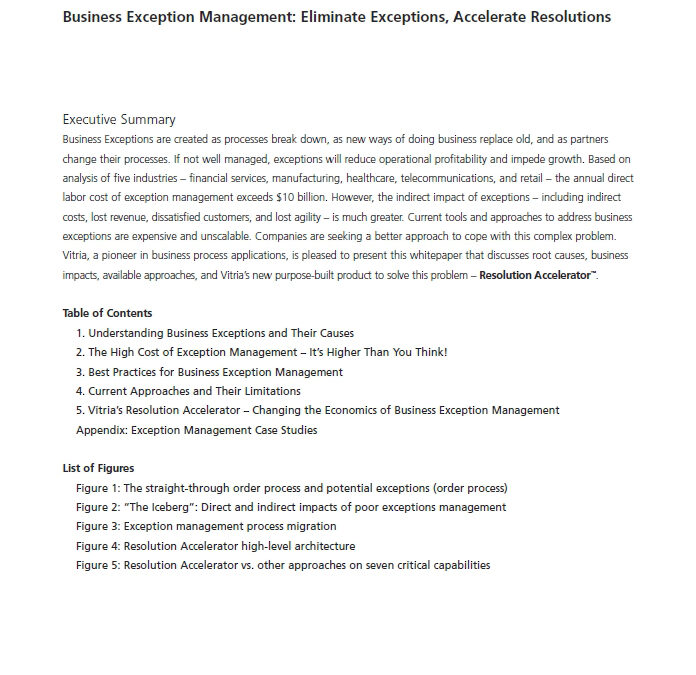
Business Exceptions are created as processes break down, as new ways of doing business replace old, and as partners change their processes. If not well managed, exceptions will reduce operational profitability and impede growth. The annual direct labor cost of exception management exceeds $10 billion. However, the indirect impact of exceptions – including indirect costs, lost revenue, dissatisfied customers, and lost agility – is much greater.
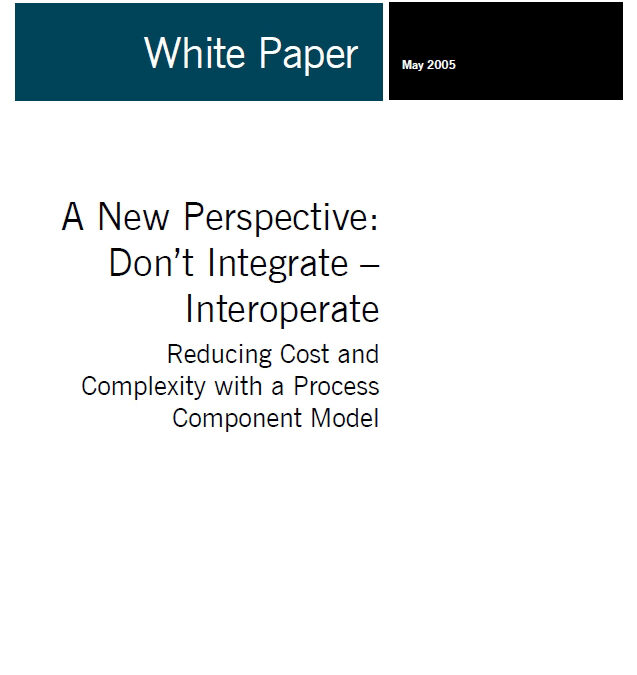
Integration is all too often seen as the only answer to the problems facing organisations. These problems typically involve the historic implementation of systems and applications, which were installed to solve specific issues. However, if organisations solve the problems of the now without regard to the future, then they are simply wasting resource in a bid to maintain a certain position.
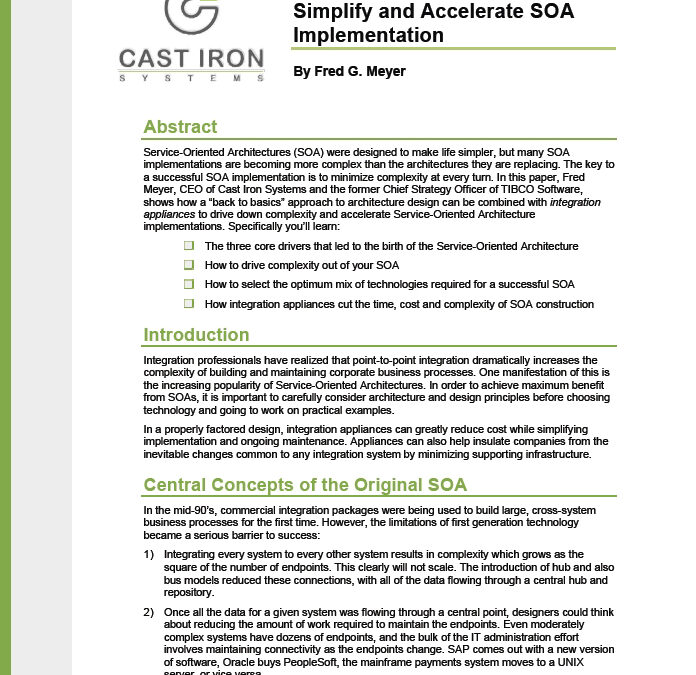
Service-Oriented Architectures (SOA) were designed to make life simpler, but many SOA implementations are becoming more complex than the architectures they’re replacing. To achieve maximum benefit from your SOA, it’s crucial to keep up with architecture and design principles, plus newer SOA technologies like integration appliances, that actively drive simplicity and project acceleration.

Enterprise Decision Management (EDM) offers organizations the opportunity to lift performance in many areas of operations. Wherever business processes involve complex decisions, and these decisions must be made rapidly, in high volumes and under changing conditions, EDM will improve results.

Many BPM solutions are beginning to sound very similar while most are missing key components, which are mandatory for a true end-to-end solution. Through goal management, process modeling and simulation, process and workflow management, content management, application integration and dashboard analytics, organizations can focus on seamlessly connecting their planning, objectives and goals directly to their rules and processes. By determining business priorities up front, organizations can ensure the many touch points, workflow and processes support key business objectives.
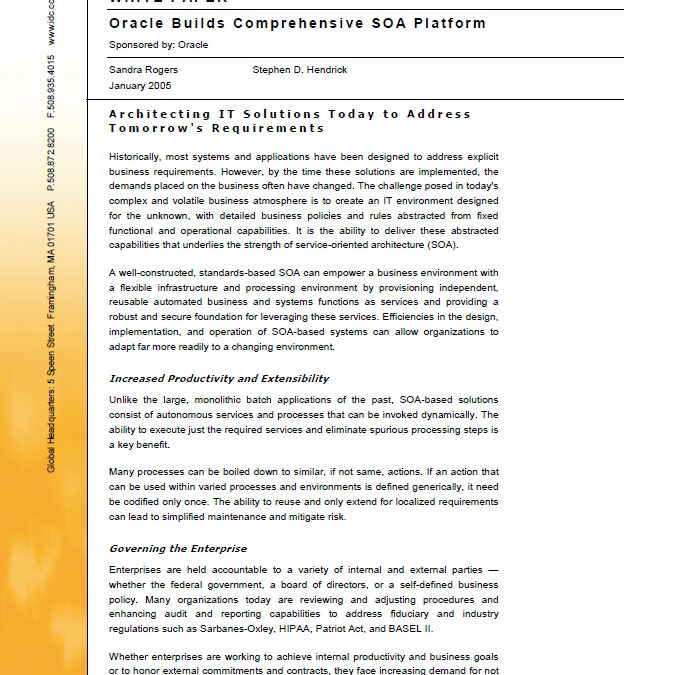
Through the recent evolution of BPM around the Business Process Execution Language (BPEL) standard, a comprehensive SOA platform has become a key requirement for implementing standards-based BPM. SOA empowers a business environment with a flexible IT infrastructure and reusable business and systems services for deploying processes. This white paper from IDC covers the requirements for building a comprehensive SOA platform including BPEL, service development, integration, management, and security.
Everyone starts here.
You're looking for a way to improve your process improvement skills, but you're not sure where to start.
Earning your Business Process Management Specialist (BPMS) Certificate will give you the competitive advantage you need in today's world. Our courses help you deliver faster and makes projects easier.
Your skills will include building hierarchical process models, using tools to analyze and assess process performance, defining critical process metrics, using best practice principles to redesign processes, developing process improvement project plans, building a center of excellence, and establishing process governance.
The BPMS Certificate is the perfect way to show employers that you are serious about business process management. With in-depth knowledge of process improvement and management, you'll be able to take your business career to the next level.
|
Courses
|
|
|
|
Courses
|
|
|
|
Courses |
|
|
Business Architecture
|
|
|
|
Courses
|
|
|
|
Courses |
Certificate
|
|
Courses |
Certificate
|